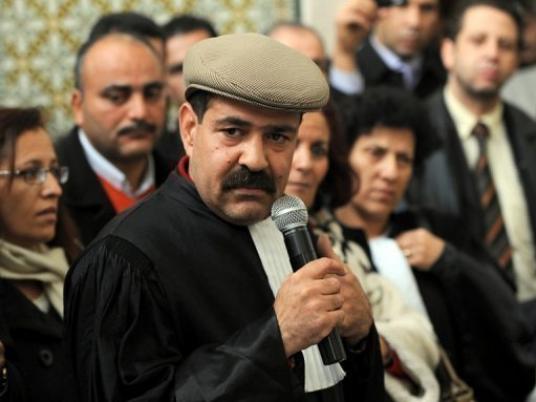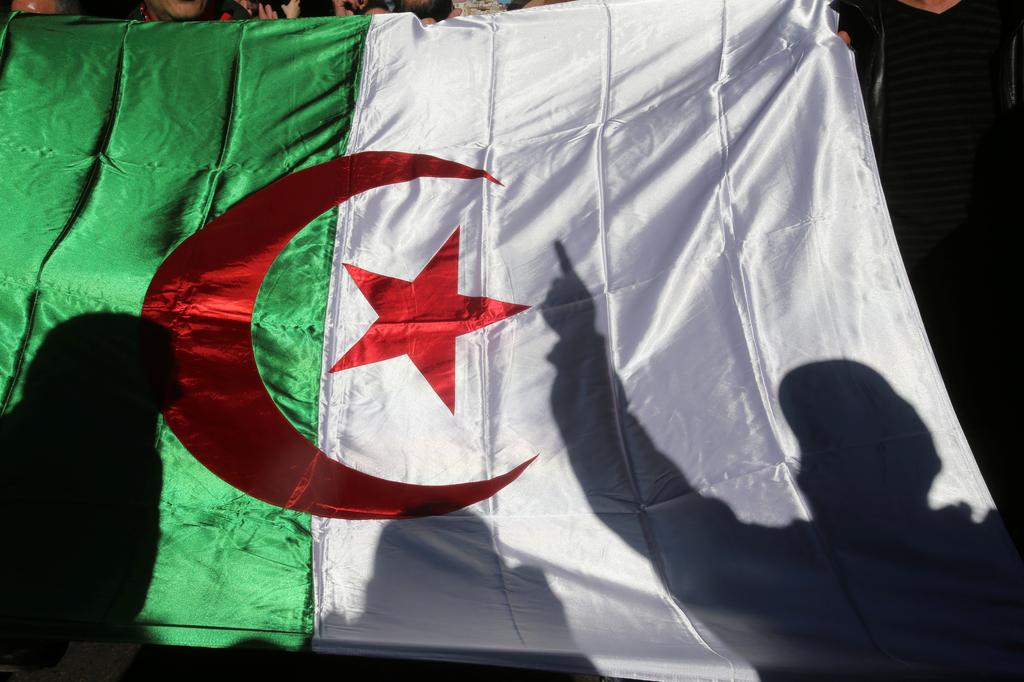
A general strike gripped Tunis on Friday as mourners gathered for the funeral of opposition politician Chokri Belaid, whose assassination has plunged Tunisia into a deep political crisis.
Some shouted slogans against Rachid Ghannouchi, leader of the ruling Islamist Ennahda party. "Ghannouchi, assassin, criminal," they chanted. "Tunisia is free, terrorism out."
Tunisia, cradle of the Arab uprisings, is riven by tensions between dominant Islamists and their secular opponents, and by frustration at the lack of social and economic progress since President Zine al-Abidine Ben Ali was ousted in January 2011.
Hundreds of anti-riot police deployed in Habib Bourguiba Avenue, a flashpoint for anti-government protests in the Tunisian capital. Banks, factories and some shops were closed in response to a strike called by unions in protest at Wednesday's killing of Belaid, but buses were running normally.
After Belaid's assassination, Prime Minister Hamdi Jebali, an Islamist, said he would dissolve the government and form a non-partisan cabinet of technocrats to rule until elections could be held.
But his own Ennahda party and its secular coalition partners complained they had not been consulted, casting doubt over the status of the government and compounding political uncertainty.
No one has claimed responsibility for the killing of Belaid, a lawyer and secular opposition figure, shot dead outside his home by a gunman who fled on the back of a motorcycle.
Ennahda officials targeted
His family have blamed Ennahda but the party has denied any hand in the shooting. Crowds have attacked several Ennahda party offices in Tunis and other cities in the past two days.
While Belaid had only a modest political following, his criticism of Ennahda policies spoke for many Tunisians who fear religious radicals are bent on snuffing out freedoms won in the first of the revolts that rippled through the Arab world.
"Criminals assassinated Chokri, but will not assassinate his struggle," his widow Besma said on Thursday. "My sadness ended when I saw thousands flocking to the streets … At that moment I knew that the country is fine and men and women in my country are defending democracy, freedom and life."
All three ruling parties and sections of the opposition rebuffed Jebali's plan to create a small, technocrat government to take over day-to-day matters until elections could be held, demanding they be consulted before any such move.
"In the likely event that there is no agreement, civil unrest will increase, reaching a level that cannot be contained by the police," said Firas Abi Ali of the London-based Exclusive Analysis think-tank.
"If unrest continued for more than two weeks, the army would probably reluctantly step in and back a technocrat government, as well as fresh elections for a new Constituent Assembly."
The economic effect of political uncertainty and street unrest could be serious in a country which has yet to draft a new constitution and which relies heavily on the tourist trade.
Mohamed Ali Toumi, president of the Tunisian Federation of Travel Agencies, described the week's events as a catastrophe that would have a negative impact on tourism, but he told the national news agency TAP no cancellations had been reported yet.
The cost of insuring Tunisian government bonds against default rose to its highest level in more than four years on Thursday and ratings agency Fitch said it could further downgrade Tunisia if political instability continues or worsens.



